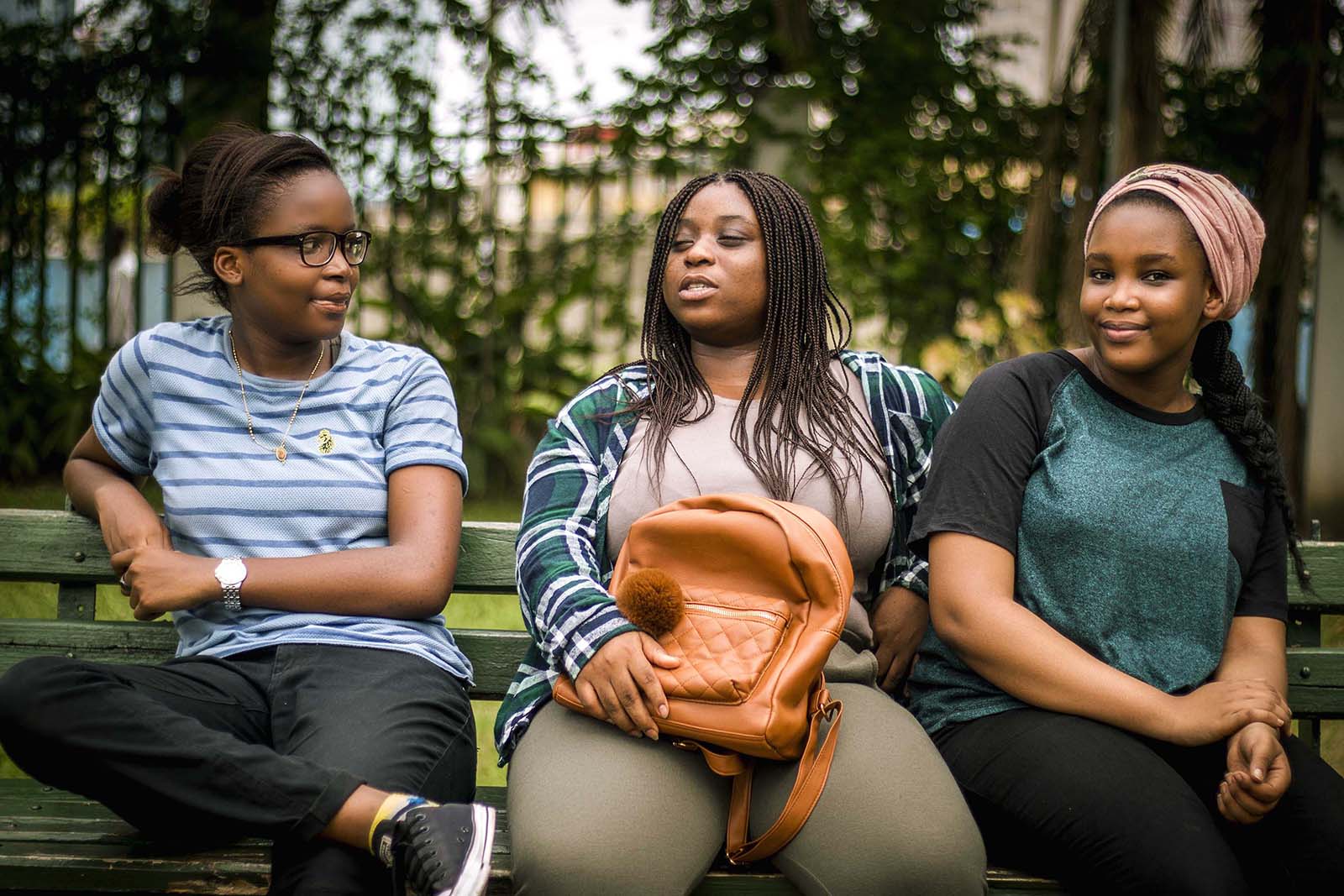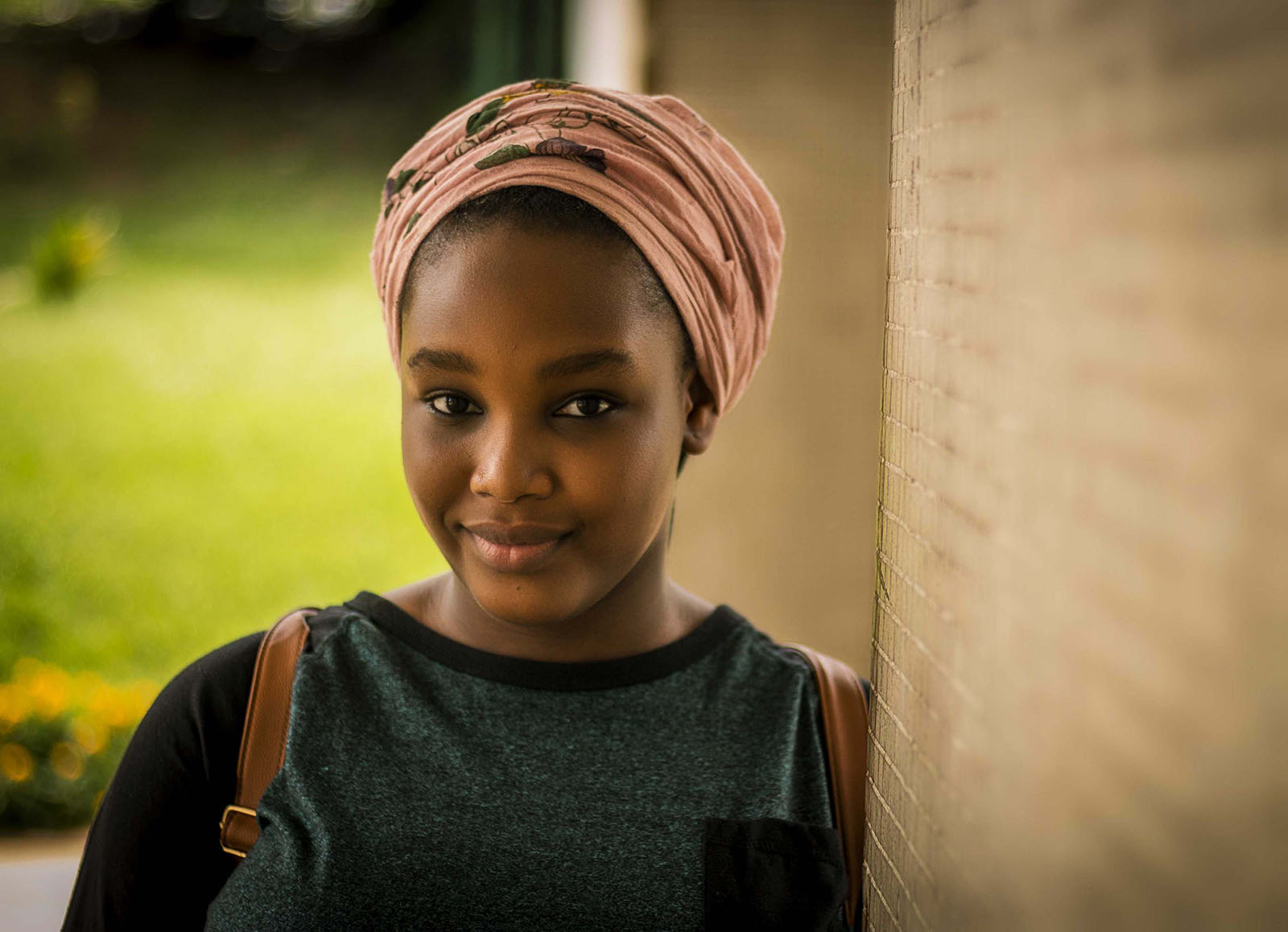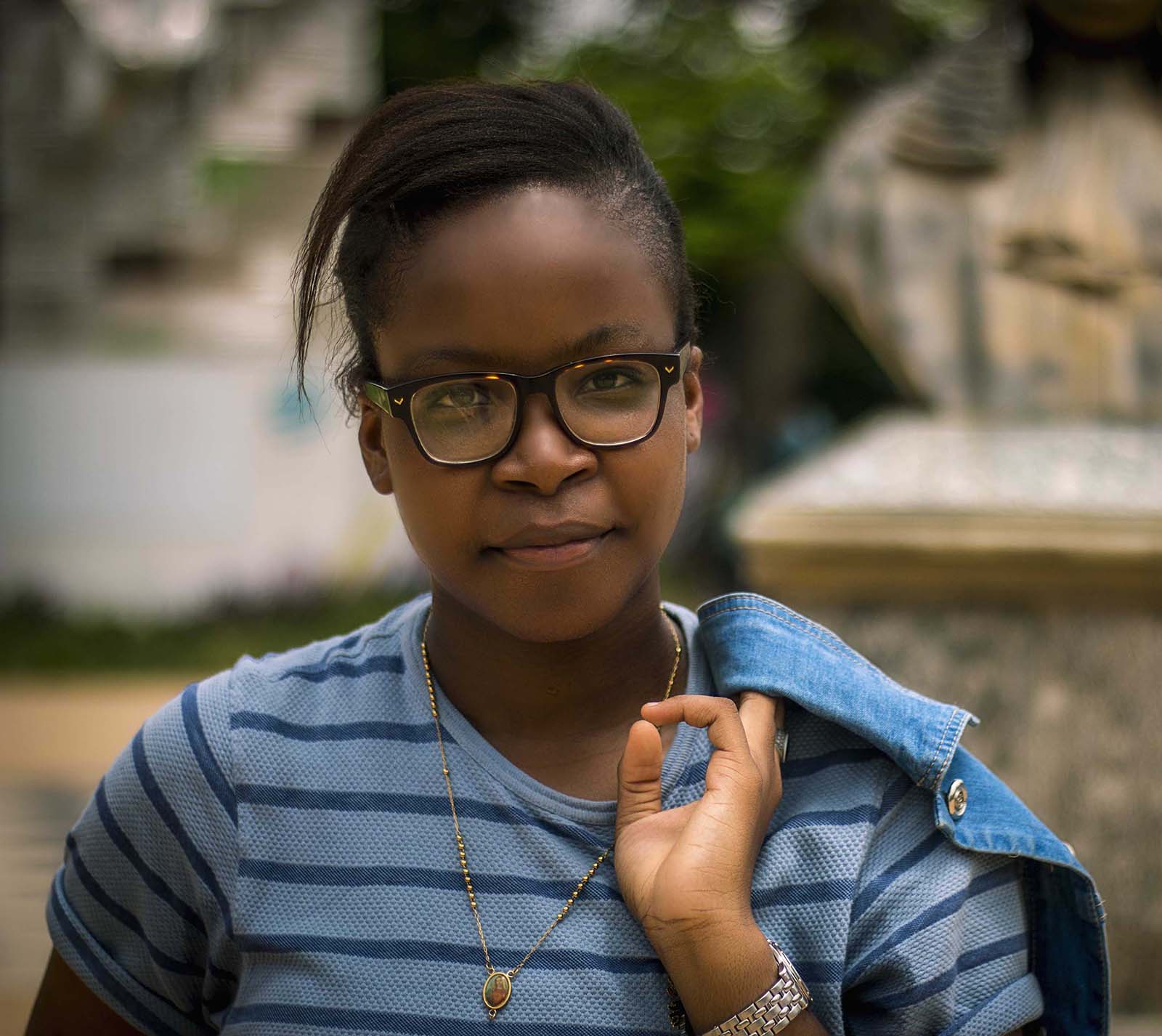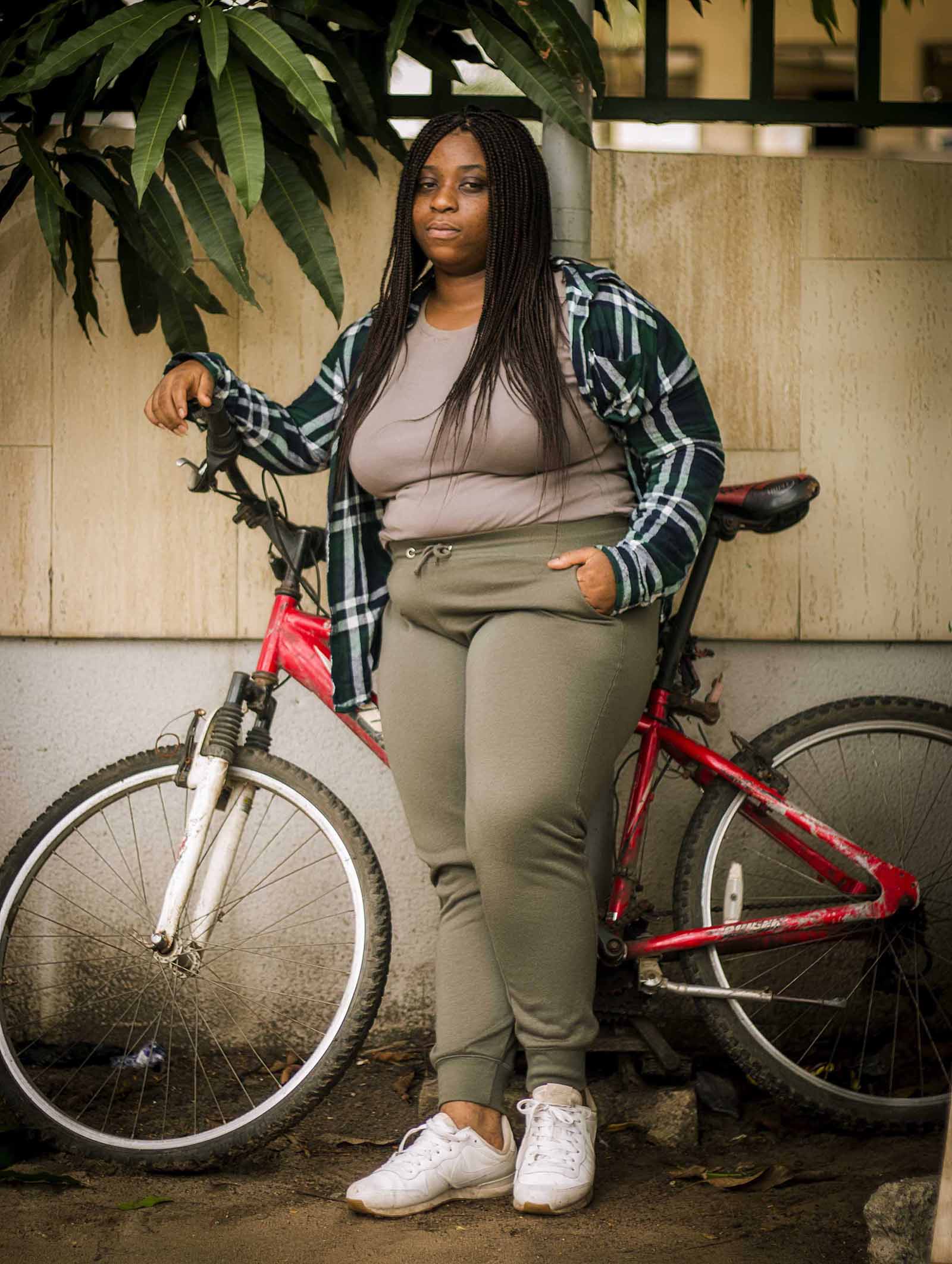These schoolgirls want an end to child marriage. So they're fighting to change their country's constitution
Updated 0845 GMT (1645 HKT) May 25, 2019
CNN is committed to covering gender inequality wherever it occurs in the world. This story is part of As Equals, an ongoing series.
Lagos, Nigeria ŌĆö In a plush living room of a home in a wealthy suburb of Lagos, three teenagers are huddled around a computer.
Kudirat Abiola, 15, Temitayo Asuni, 15 and Susan Ubogu, 16, want to change the law on child marriage in Nigeria and they're deep in discussion, even ignoring calls to break for a hearty Sunday lunch of jollof rice and southern fried chicken.
More than a third of girls in Nigeria end up in child marriages, and with 22 million married before the age of 18, the nation has among the highest number of child brides in Africa, according to a 2018 UNICEF report.
The girls are checking an online petition they've started. They know it's a tall order to get lawmakers to close the legal loopholes that currently enable men to enter marriages with girls under 18. But they are unfazed by things others their age might be.
Abiola, who aspires to be a children's rights activist, says it's a very emotional issue for the three of them."How do you give a young girl such a responsibility and have her education, friends, and family taken away from her?" she asks.
Campaigning for human rights is second nature to Abiola, who comes from a family of prominent activists.
Abiola's grandmother, also called Kudirat, fought for Nigeria's democracy before she was assassinated in 1996. It came three years after the military jailed Moshood Kola Abiola, the apparent victor of the annulled 1993 presidential elections and the teenage activist's grandfather.
Abiola is also inspired by her aunt, Hafsat Abiola, a prominent civil rights activist.
"Those are my role models," the 15-year-old says. "They have broken the stereotype that girls cannot achieve what boys can."
Ubogu taught herself to code at age 10 after taking lessons on the internet and already has a software company with two games in the Google Play store.
"I was bored with my math class... So I decided to get into programming," Ubogu says as she types on her laptop. "I love challenges."
The math geek says no girl should be denied her education because of marriage.
"At the age of 11, most girls should be getting an education ŌĆö in the classroom, not the kitchen. Times are changing, and no one should think a woman's role is limited to the kitchen," Ubogu told CNN.
Asuni says she has been reading newspaper articles of young girls being married off to men old enough to be their fathers since elementary school.
The 15-year-old says she felt helpless about it until she met Ubogu and Abiola at a workshop in December organized by local NGO to educate students about the UN Sustainable Development Goals.
"As we got talking, we realized we needed to start with a change in our constitution," Asuni told CNN.
The girls'campaign NeverYourFault specifically takes aim at a clause in Section 29 of the Nigerian constitution they say backs underage marriage.
While Nigeria's 2003 Child Rights Act says children under the age of 18 cannot get married, a sub-section of the country's constitution tackling citizenship says "any woman who is married shall be deemed to be of full age."
Abiola, Asuni, and Ubogu want the second part of that section to be expunged.
Efforts to remove this loophole, which rights groups argue could be used to justify child marriage was met with stiff opposition at Nigeria's Senate in 2013.
"If you are 11 and you are married, you are deemed to be a woman. This is a serious problem because we follow the constitution," Abiola told CNN.
Their online petition asks lawmakers to raise the age of consent from 11 to 18 years, a change they believe would criminalize child marriage in Nigeria.
To date over 130,000 people have signed the change.org petition which is addressed to the Federal Government of Nigeria.
Aside from the petition, the three are organizing workshops on gender equality, partnering with Nigerian celebrities to rally support to their campaign.
Global child rights group Plan International gave its support to their cause earlier this year.
Not everyone is thrilled with their advocacy, and the teens are constantly battling online trolls.
"We've been getting a lot of hate comments and opposition because people don't agree with what we're doing. Everyone has their opinion and beliefs," Asuni told CNN.
Although peer-led campaigns from teenagers like Abiola, Asuni, and Ubogu are exceptionally rare in Nigeria, grassroots initiatives against child marriage have been tried before.
In 2010, the #ChildNotBride hashtag trended on social media after the lavish wedding of a Nigerian lawmaker to a girl widely believed to be 13 years old.
Senator Ahmad Sani Yerima, 58, who was previously a governor, said at the time that he had not violated the law and that his marriage was in line with Islamic shariah laws. Yerima has denied the bride was 13.
Separately, in December 2018, news of a purported wedding between a 70-year-old man and a teenage girl in December triggered widespread debate among Nigerians about early child marriage.
The groom denied that he was in his 70s and also claimed the bride was not underage.
Photos from the wedding showing the bride covered in a blue scarf with her head bowed while the elderly groom grinned at the camera and despite the denial are still being circulated on social media.
When Nigeria signed the Child Rights Act in 2003 setting the marriage age at 18, many child rights groups heaved a sigh of relief hoping it would outlaw the practice across the West African nation.
But a decade and a half after the law was signed, many northern states, where child marriage is rife, are yet to ratify it.
Plan International's Country Director in Nigeria Hussaini Abdu says it is challenging to end child marriage in the absence of laws that forbid the practice.
Girls are already marginalized in Nigeria, Abdu says and forcing them to marry at a young age further silences their voices.
"Disgracefully, in Nigeria, there is no minimum age of marriage... 43% of girls are married off before their 18th birthday, condemning them to a life they never wanted," he said.
"The government of Nigeria must do more to combat this practice, to protect girls and to enable them to live their lives freely, as equals to boys and men."
Close to 30% of women in their early 20s from low-income were married in their childhood compared to 10% of girls from wealthy homes in Nigeria, according to a UNICEF 2018 report.
The Nigerian government has not responded to CNN's requests for comment on child marriage in the country or to the teenagers' petition.
Child marriage remains a problem in many other parts of the world, but the practice is more widespread in West and Central Africa. Three countries Niger, Chad, and the Central African Republic account for the highest prevalence of child marriages in the world, according to the 2018 UNICEF report.
Worried by the extent of the problem, the Economic Community of West African States (ECOWAS) in January called on member states to adopt policies that will keep girls in school, as an alternative to child marriage.
ECOWAS said the framework will also help girls who are already trapped in early marriages strive for a better future.
And in February, Pope Francis spoke out about ending child marriage, saying the Catholic Church would raise the age of consent from 14 to 16.
Some Catholic communities already have this law in place for boys and girls within the church, but Pope Francis promised to make it a universal Catholic Church law and urged countries still allowing child marriage to follow.
Abiola, Asuni, and Ubogu say their advocacy will not end with the proposed change in the laws.
Their larger goal is to reach those that are trapped in early marriage. "We're going to go to the victims," Asuni told CNN.
"We have said before that this campaign goes beyond changing the constitution. It may have started with an online petition, but the people it affects don't have access to the internet. So we want to educate them."







